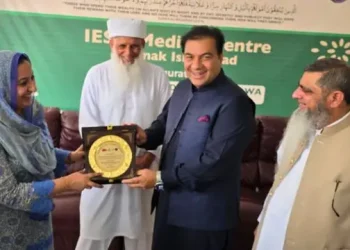ISLAMABAD: Indus Motor Company (IMC), the assembler of Toyota vehicles in Pakistan, has made an announcement signaling its intent to pass on the benefits of the recent strengthening of the Pakistani rupee against the US dollar to its customers. Commencing from October 24, IMC has initiated substantial price reductions of up to 8.3%, equivalent to a reduction of Rs1.31 million.
Toyota Model Price Adjustments
As reported on Wednesday, IMC, responsible for marketing Toyota’s Yaris, Corolla, Revo, and Fortuner models, has conveyed these revised prices to its dealers. This strategic move aligns with similar price reduction initiatives undertaken by MG Motors and Lucky Motor Corporation, both of which recently disclosed price cuts for their vehicles.
- The basic Yaris model, known as the 1.3MT LO, has witnessed a price reduction of Rs100,000, representing a 2.2% decrease, bringing its new price to Rs4.399 million.
- Simultaneously, the top Yaris variant, the 1.5 CVT Aero, is now available at a price of Rs5.849 million, reflecting a price decrease of Rs120,000.
- Toyota Corolla variants have experienced reductions ranging from Rs200,000 to Rs250,000.
- The Revo, Toyota’s pickup truck, has become more affordable by Rs450,000, now priced at Rs790,000.
- The Fortuner’s top variants, the Legender and GRS, have seen significant price reductions, dropping below the Rs20 million mark after a reduction of Rs1.13 million and Rs1.19 million, respectively.
- The most substantial price cut among all models is for the Fortuner G4x2 Petrol STD, which will now be sold for Rs14.499 million, a substantial reduction of Rs1.31 million, equivalent to an 8.3% decrease.
Rupee’s Recent Gains and Economic Implications
Recent times have seen the Pakistani rupee strengthen by over 10% against the US dollar, rebounding from its record low of 307.1. This recovery and stability are attributed to the efforts of the caretaker government to combat smuggling and hoarding, curbing illegal outflows of currency.
Challenges in Pakistan’s Auto Sector
The automobile sector in Pakistan has been grappling with challenges since the previous year when the government introduced import restrictions to curtail the outflow of dollars. These measures led to a sharp decline in both demand and production, forcing some automakers to scale down production and temporarily shut their facilities.
Impact on Auto Sector and Consumer Demand
The currency appreciation has eased financial pressures on the auto sector, which heavily relies on imported parts and raw materials, and has been contending with high costs and diminished demand. Data from the Pakistan Automotive Manufacturers Association (PAMA) shows a substantial drop in auto sales during the first quarter of the fiscal year 2023/24, as high prices, expensive financing, and weak consumer demand have taken their toll.
- Car sales plummeted by 44%, falling from 28,571 units to 16,021 units during the July-September period compared to the previous year.
- Sales of jeeps, SUVs, and pickups also declined by 23%, dropping to 4,962 units from 6,431 units.
This decline affected all segments except tractors, which experienced a remarkable 64% surge in sales, rising from 7,368 units to 12,090 units, reflecting a revival in the agriculture sector.
Despite the auto sector’s difficult circumstances, there has been a gradual recovery in August and September on a month-on-month basis. This improvement is attributed to the resolution of issues related to the import of completely knocked down (CKD) kits and the ramping up of production by automakers.
(Islamabad51_Newsdesk)














